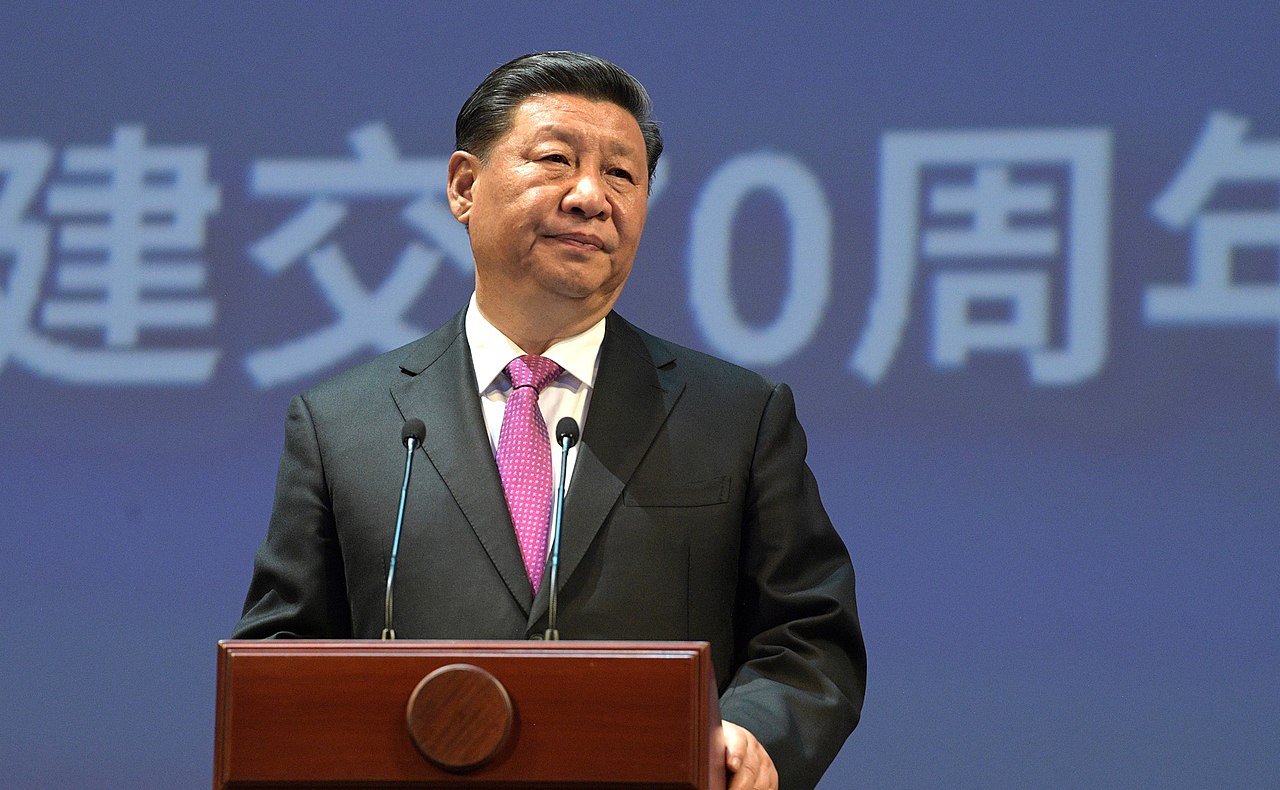Weapons, oil, dollar: all the objectives of Xi’s visit to Saudi Arabia

Chinese President Xi Jinping's first overseas trip since the start of the pandemic will be to Saudi Arabia. Here are reasons and objectives. Marco Orioles's article
For his first trip abroad after the outbreak of the pandemic, Xi Jinping chooses to fly to Saudi Arabia, just one month after Joe Biden's visit, which everyone, including those directly involved, judged a failure.
Pharaonic welcome for Xi
This will not be the case for the Chinese President, in view of whose arrival a pharaonic welcome is being prepared that rivals that, equally princely, reserved for Donald Trump in 2017.
A double diplomatic success
As Politico observes, Xi's stop in the Saud kingdom will allow him to collect a double diplomatic success: it allows him to exhibit excellent relations with an important energy supplier, but also to project Chinese influence outside without incurring the risk of to undergo lectures on human rights as is the custom of the United States and its allies.
In parts of China there is a flourishing of praise for what the spokesman for the Beijing Foreign Ministry, Wang Wenbin, called a relationship between "global strategic partners".
A close business relationship
Indeed, as the Center for Strategic and International Studies points out, that between Saudi Arabia and China is a close economic relationship lubricated by China's dependence on Saudi oil.
The Kingdom is China's largest trading partner in the region, while Beijing is Saudi Arabia's largest global trading partner, with trade reaching $ 65.2 billion in 2020.
By comparison, trade between Saudi Arabia and the US is still at a much more modest value of 19.7 billion.
Chinese construction companies are very active in the Kingdom where they are engaged in the construction of large infrastructures. For its part, Saudi Arabia has set up refineries and petrochemical plants in China suitable for the specific type of crude oil extracted in the peninsula.
The Kingdom's entry into the SCO
Far from being limited to economic issues, the embrace between China and Saudi Arabia was cemented last year by the co- opting of the latter, as a "Dialogue Partner" in the Shanghai Cooperation Organization, Cooperation Forum on security that in addition to China and Russia includes Kazakhstan, Kyrgyzstan, Uzbekistan, Iran, India and Pakistan.
The MoU between Saudi Aramco and Sinopec
The willingness of both countries to further enhance this partnership is palpable. A test came last month with the signing of a Memorandum of Understanding between the two state energy giants Saudi Aramco and Sinopec, aimed at extending the already existing join ventures between the two companies that led to the joint construction of large plants refining in the two countries.
As can be seen from the press release issued by Aramco, the agreement provides for the further integration between the two companies in the fields of refining, petrochemicals, construction, services, upstream and downstream technologies, coal and hydrogen. The construction of a manufacturing hub in the setting of the King Salman Energy Park is also under discussion.
Towards dedollarization?
But, as revealed by the Wall Street Journal , in the field of energy cooperation, Saudi Arabia is considering taking a further step in the direction of its Chinese friends by renaming some contracts for the supply of oil in their currency, as a clear sign of the will to proceed. towards the dedollarization so dear to Beijing.
However, it is not certain that this last move will have the desired effects due to the absolute predominance of the dollar as the reference currency for energy transactions. As David Satterfield, former Deputy Assistant Secretary of State and current Director of Rice University's Baker Institute for Public Policy, told Politico, "there is only one currency for oil prices and it is not the ruble or the yuan."
The arms issue
China has also made itself available as a supplier of arms that America has historically refused to make available to Saudi Arabia for fear of unleashing a regional arms race. And it is probably in consideration of this complicity that Biden, on his return from his visit to Jeddah, approved the sale to the Kingdom of a maxi-pack of weapons worth over three billion dollars which could include the sale of Patriot missile batteries.
The Iranian dossier
In the dispute between China and the US for the loyalty of the largest oil producer in the world, the latter have an ace up their sleeves: the common aversion to Iran, the historic regional rival of Saudi Arabia.
Will this factor prevent the relationship between China and Saudi Arabia from further cementing? The aforementioned Satterfield is convinced of this, for whom "the US is and remains the crucial security partner of Saudi Arabia as Iran is the most significant source of threats for Saudi Arabia and for the entire region of Gulf. China is not worried about Iran. And it cannot and does not want to be a partner, in any meaningful way, in a conflict ”between the Kingdom and the Islamic Republic.
This is a machine translation from Italian language of a post published on Start Magazine at the URL https://www.startmag.it/mondo/visita-xi-jinping-arabia-saudita/ on Wed, 17 Aug 2022 07:42:01 +0000.
